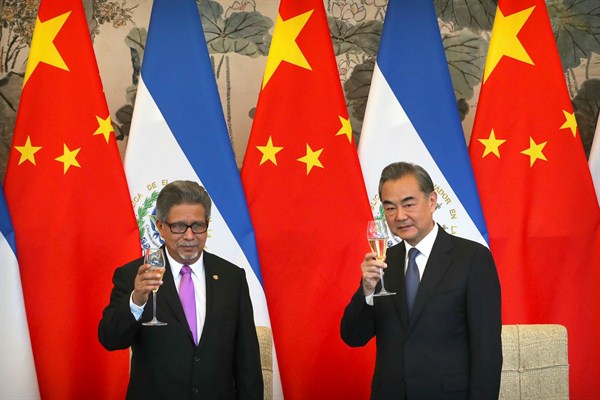El Salvador’s decision last month to cut diplomatic ties with Taiwan and establish relations with China came as a blow to Taiwanese President Tsai Ing-wen, who condemned Beijing for “increasingly out-of-control international behavior.” The move also prompted a harsh response from the United States, as the White House expressed “grave concern” and accused China of “political interference in the Western Hemisphere.” However, according to R. Evan Ellis, a research professor of Latin American studies at the U.S. Army War College, both Washington and Taipei may be powerless to prevent more countries from following suit. In an email interview, he explains why.
World Politics Review: What are the main political and economic factors behind El Salvador’s decision to cut ties with Taiwan in favor of establishing relations with China?
R. Evan Ellis: As with other changes in diplomatic recognition, it will be some time before the story of the calculations of President Salvador Sanchez Ceren and other Salvadoran leaders can be told. That said, a substantial part of the decision was likely political rather than economic. The Trump administration’s January 2018 announcement ending the Temporary Protected Status for over 200,000 Salvadoran immigrants in the United States, on top of expanded deportations and harsh statements about Central American immigrants, arguably removed an important incentive for Sanchez Ceren, a former leftist guerilla fighter, to avoid provoking Washington by recognizing Beijing.

